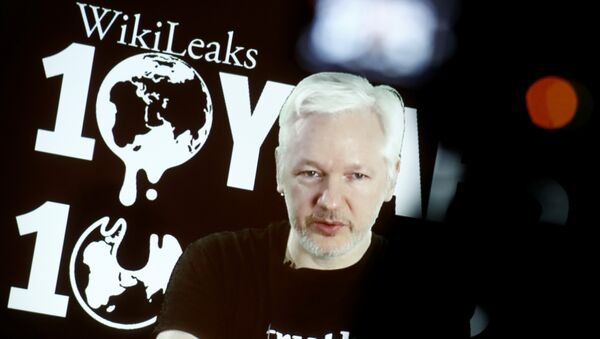"The mainstream media wish that [Assange] had run his course long time ago, but at the same time they are perfectly willing to use the disclosures of WikiLeaks to their own advantage and to their own aggrandizement," he said.
Pilger, who recently spoke to Assange, cited the Guardian as a "particularly sad example." The newspaper, he said, has "done very well on the fruits of the WikiLeaks project, but at the same time has behaved shamefully towards Assange and WikiLeaks."
Pilger also mentioned one particular email which confirms that Saudi and Qatari governments sponsored Sunni radical groups, including Daesh. Interestingly, Riyadh is one of Washington's closest allies in the Middle East, a region devastated by sectarian violence fueled by armed radical organizations. At the same time the United States has ostensibly been committed to destroying Daesh.
The journalist named conflicting interests and policy needs as the reasons behind these inconsistent policies.
"In any large and complex country there are conflicting interests. And that's certainly the case with foreign policy. You have all sorts of interests within the State Department and the so-called Defense Department, who don't want the same thing and don't have the same ideas about the world and where to take the country," he said.
Pilger mentioned that this is not new for empires or countries with imperial ambitions.
"There is no doubt that the US fits all the criteria for a global empire. In fact some of its aficionados have openly stated that this is the intent and the accomplishment," he said.




